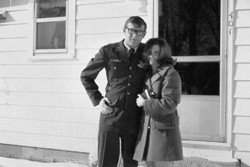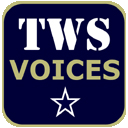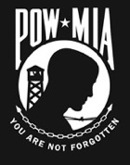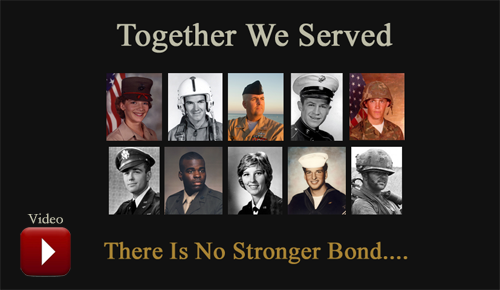 |
 |

|
|
|
An up close and personal interview with U.S. Air Force Veteran and Togetherweserved.com Member:
Capt Harry A Jacobson U.S. Air Force (1967-1971)
PLEASE DESCRIBE WHO OR WHAT INFLUENCED YOUR DECISION TO JOIN THE AIR FORCE?
 |
| Me, B 52,Thailand 1969 |
Nearing graduation from Michigan State, I received notification to report for my induction physical. I knew I was either going to be drafted or I could volunteer. At that time I decided the Air Force had the most appeal to me and I would rather go into the service as an officer than enlisted. I had hoped to be able to get an opportunity for flight school, and thought if I was accepted I might have a chance as a navigator, but thought my eye sight would probably keep me from any opportunity to be a pilot. I decided to take the test and was admitted in March of 1967 to attend Officer Training School.
WHETHER YOU WERE IN THE SERVICE FOR SEVERAL YEARS OR AS A CAREER, PLEASE DESCRIBE THE DIRECTION OR PATH YOU TOOK. WHAT WAS YOUR REASON FOR LEAVING?
 |
| Havre Daily, 1968 |
After graduating from Michigan State in March of 1967, I was directed to enter Officer Training School in April of 1967. I arrived to the Texas heat in San Antonio at Lackland AFB and spent the next 12 weeks learning to become an officer and gentleman. This was quite a transition for someone who grew up in a little town in Michigan, and who's aspirations were to become a wildlife biologist. However, I was used to regimentation, having worked my way through college at several different jobs, including being a assembly-line worker at General Motors, lumber yard laborer, bricklayer's assistant, dorm custodian, and seasonal national park ranger at Isle Royal National Park. I found I enjoyed the challenge of OTS, except for marching. I always seemed to have two left feet! I learned in that experience how much it meant to depend on your fellow service members and for each of us to be there for one another. That same outlook has carried me through life, including relationships with my fellow University employees, students I have taught, and friends I have made.
When it came time to graduate from OTS and learn of my duty assignment, I found out my abilities to read aerial photos and other parts of the flight testing portion of the OTS testing program were not my best skills, and I would not get a flight school assignment but would be trained instead as a weapons controller. Of course, I had no idea what this meant and it was not until I arrived at my first duty station, the 778th Radar Squadron in Havre, Montana that I found that out. I was only on station a short time until I was sent TDY to Tyndall AFB, FL, for weapons controller training. The next three months were demanding but rewarding as I learned the skills of radio transmission procedures, radar flight following and intercept operations in a simulation environment. I also greatly enjoyed the off duty time and made very good friends with other trainees. This training would continue with live aircraft upon my return to the 778th, and I began to grasp the significance and importance of what the weapons controller MOA was all about. I also quickly found out that when you are at a small unit, officers were given other duty assignments,which for me included air surveillance officer, information security officer, and base information officer. Base information officer, I found particularly rewarding and helpful to my later civilian life as it started me towards achieving communication and writing skills I would later find essential. For a young man that had just graduated in Fisheries and Wildlife Ecology, I could not have asked for a better duty station than Havre, Montana. Hunting and fishing were great, as were outside activities such as softball games with the townsfolk, and there was plenty of opportunity for social life for young single officers.
My time at the 778th was memorable, but I also felt that there was more to see and do and I volunteered for SEA duty for my next assignment. I got my wish and found myself looking down at black smoke rising and a strange country side as the plane carrying us descended from the South China sea to DaNang AB, Viet Nam, in July of 1968. At that time, which was just after the TET offensive, I had a very queasy feeling that I am sure many others before and after me also felt as to what I had got myself into. That all went out of my mind when I and others slated to go to the 620th Tactical Control Squadron, also known as Monkey Mountain, were met by officers from that unit who escorted us first to equipment assignment at Danang and then loaded us on a truck that would carry us to our new home, the 620th Tactical Control Squadron.
My time at Monkey Mountain was probably the most exciting and rewarding experience of my whole military experience. The shifts were long and demanding and always filled with suspense. Since we were still bombing the North, our radar scopes were frequently filled with emergency displays and the airwaves were often cluttered with transmissions from pilots who had taken battle damage or were returning from missions with "bingo" fuel and needed directions to their tankers immediately. At times, I would be flight following up to twenty aircraft at one time. My shifts on scope here, and later on when I was transferred to Nakhon Phanom, Thailand, and Invert control, were also sobering, as the main board in the operations room was more often than not filled with locations of downed airman and search and air rescue missions that were underway. At times, it was heartbreaking as once I released FACs to station and I would hand off strike or search and rescue aircraft to their control, it was sometimes their last contact with ground radar. There were also other memories like having to go up the mountain during torrential downpours and weathering typhoons. At the end of shifts, we could relax by throwing beer cans at the large rats that frequently scurried across the floor in the room what served as our base 'O' club. The view of the gulf of Tonkin from the mountain and the surrounding country side was also very notable. On most nights, on breaks from the operations room, you could see the fire fights and bombs dropping in the distance or watch the awesome display of tracers falling from the sky as "Puff the Magic Dragon's" carried out their assignments to the north and west of the mountain.
At the end of October, 1968, things were really heating up in Laos and the radar detachment at Nakhon Phanom was badly in need of additional controllers and I and a couple of other Lieutenants were sent TDY there to help with manning shortages. This was later changed in February 1969 from a TDY to a permanent change of station for me. As far as operations would go, Nakhon Phanom and Invert would turn out to be more of the same as experienced at Panama control. When operation rolling thunder ended in November, it seemed most of the air war shifted to Laos. Before I was transferred to my next assignment, between my time at Panama and Invert, I would end up controlling 284 fighter and tanker refueling hookups, between 30-40 flight emergencies, and help coordinate a number of search and air rescues. The main difference between duty at Invert and Panama rested in off duty accommodations. We had air conditioned billets at Nakhon Phenom and a great 'O' club. We also could take liberty to town without concern of the ground war, although on any given night in Nakhon Phanom you could sit on the bank of the Mekong river and watch fireworks from bombs being dropped across the river in Laos. I don't know if it is common to others that experienced these sights and sounds, but to this day, I have trouble watching fourth of July fireworks displays because of the memories of those sights and sounds in Viet Nam and at Nakhon Phanom.
While at Invert, and having become operational ready as a weapons assignment officer, as well as a weapons director, I was on duty when visited by a staff Operations Officer from 505th Headquarters, Captain David Nevin. I was acquainted with Captain Nevin from an earlier days when he had been my instructor during controller training school at Tyndal Air Force Base. If I was interested, Captain Nevin informed me, I was being selected out of 200 other controllers to head up a new position in 505th Headquarters, OIC of Special Missions, 505th Group Staff, Tan Son Nhut AB, Saigon. It would mean extending my SEA tour, but it was a challenge I couldn't resist.
In May of 1969, I reported to 505th HQTS. My duties there would include developing operations plans for 505th TAC units secretive missions, including all SAC operations, along with reconnaissance aircraft; developing and standardizing procedures for handling aircraft emergencies; developing procedures for monitoring combat ready status of weapons controllers; and I was assigned the project officer for developing secure air to ground communications in SEA. As such, I was also assigned flight duty so that I could participate as an observer with aircrews being handled by 505th ground units. Because of this, I was able to participate in several classified flights over hostile territory, most involving missions with SAC. I also was required to personally visit all 505th ground units to familiarize myself with their unique combat support missions and to evaluate specific operations. As a result of this, I finally was able to get some of the flying time I had originally hoped to get when I entered the Air Force.
Because of my extensions of SEA duty, in December of 1969 I was able to take a 30 day leave home to Michigan where I was able to spend time with both my parents and also the girl, Judith Mathieson, who would become my wife. I would spend most of my R&R with Judy, I had met her while she was working for National Park concessions and I was a seasonal National Park Ranger during the summer before I graduated from Michigan State. We had become best friends and had corresponded since that time. Because of our letters, I was hooked before I got off the flight in Detroit where she met me at the airport. By the time I would return to the 505th, we had become engaged. In April 1970, I was again able to take a seven day R&R, and we were married by a Chaplin at Fort DeRussey, HI. Parting from my new wife and a R&R honeymoon was difficult, but as it turned out I would actually get to spend another week with her in June, of 1970, when I was sent stateside, TDY to San Antonio, TX, to review and evaluate the secure ground to air prototype proposed for use by our sites in SEA. As soon as I knew of that assignment, I arranged for for her to meet and spend off duty time with me in San Antonio. When I reported for duty there, I was informed it would be three days before the prototype would be ready for evaluation and to find something to occupy my time during that time. That ended up as a second honeymoon for us at the courtesy of the United States Air Force.
On the way back from San Antonio, I was to brief general officers at CINCPAC Headquarters, HI, on my findings. I doubt I was ever more nervous about anything in my life, as a 1st Lt, I would give a 20 minute briefing and question and answer session to more general officers and full colonels than I thought it was possible to gather in one room. But somehow I got through it fine and was complemented on my presentation by those present. In August 1970, I received my orders to return Stateside. Although I had hoped for an airborne warning and control assignment, I was assigned to the 4645 Support Squadron, Duluth, MN. There, I would be again back to control duties as an intercept director/weapons director in the 23 NORAD command. I found this a difficult assignment, because now instead of the manual radar displays I had been familiar with for the first three years of my service, I had to become proficient in using the SAGE (semi automatic display system) for radar control. I did become operationally ready in all positions, passed all examinations and participated on the combat operational crew for all evaluations as an intercept director, weapons director, and senior director. However, I found even the live readiness operations where we simulated defense against air attacks from the north were a letdown from the excitement of SEA assignment. I also found myself thinking of the civilian career path I had been educated for, along with responsibilities which would come from a soon to be newborn son and what Air Force life would mean to my dependents. The ability to again spend time in the north woods of Minnesota also reminded me of how much I missed the original career I had trained for. I decided as much as I loved the Air Force, I really did want to pursue my wildlife biology career and also not have to endure prolonged separations that that remote Air Force assignments would require. Because of these considerations I asked for and received a separation. In August 1971, I again became a civilian and having been accepted for graduate school at Virginia Polytechnic Institute and State University, began a career in wildlife biology and management.
IF YOU PARTICIPATED IN ANY MILITARY OPERATIONS, INCLUDING COMBAT, HUMANITARIAN AND PEACEKEEPING OPERATIONS, PLEASE DESCRIBE THOSE WHICH WERE THE MOST SIGNIFICANT TO YOU AND, IF LIFE-CHANGING, IN WHAT WAY.
 |
| Monkey Mountain, Vietnam 1968 |
All of my operations experiences during the South East Asia conflict were meaningful to me as I thought I was making a real contribution to the war effort. Perhaps the most meaningful were several flight emergencies I was tasked with handling the ground control of. Knowing I was able to contribute something to the safe recovery of the aircrews involved on more than one occasion were the most rewarding of life experiences. Of particular satisfaction, was more than one call I received in the operations center from aircrews thanking me for the help they received during their emergency. These were certainly life changing moments, but even more life changing were the tragic moments when aircrews lost their lives or became missing in action that we in the operations control room watched or listened too as they played out and could do nothing about. I try to blot those memories from my mind. There is not enough I can say to honor the sacrifice that those brave airmen made for their country.
OF ALL YOUR DUTY STATIONS OR ASSIGNMENTS, WHICH ONE DO YOU HAVE FONDEST MEMORIES OF AND WHY? WHICH ONE WAS YOUR LEAST FAVORITE?
 |
| R&R, December 1969 |
It is difficult to say which duty station I have the fondest memories from. If pushed, I would probably say my assignment as OIC of Special Missions at 505th TAC Control Group. I feel very honored, that as a 1st Lt I was chosen for this position. As such, I had greater responsibility and more influence on ground control operations in SEA than many other officers with superior rank to my own. I can only hope that all operations folks at TAC control units under the 505th felt they were well served by the ops plans they were directed to use which originated from my desk, or which I had input into. The people I served with at the 505th were, for the most part, the finest and most dedicated airmen I encountered during my whole Air Force experience. This extended as well to the many operations types I encountered at all of the 505th sites I had the pleasure of visiting during my tenure there.
My least favorite duty station was my last, only because of the computerized displays on the radar scopes that I worked with. I felt much more comfortable with the manual radar displays I had previously worked with and the computer displays seemed to distort the radar picture. I eventually adjusted to working with the SAGE system and adopted to working in this environment. However, I enjoyed controlling and the director experiences in the TAC manual environment much more than in the ADC SAGE environment. I am sure if I had not left the Air Force I would have got over this. In fact, I found I would later need to become much more computer literate in my graduate student research and academic positions in civilian life than I ever was in the military.
FROM YOUR ENTIRE SERVICE, INCLUDING COMBAT, DESCRIBE THE PERSONAL MEMORIES WHICH HAVE IMPACTED YOU MOST?
 |
| FAC landing Dong Ha, Near DMZ, 1969, |
Certainly, watching and listening to search and air rescue attempts in the command and control centers I worked with during the SEA operations have been ingrained forever in my mind. Those memories make me realize how great this country is and the sacrifices others have made for it. Although I realize there was some danger from being in Viet Nam and when on board combat flights as an observer, I never personally felt I was in much danger. Other than experiencing air raid sirens from incoming 122 rockets that were usually far off target, I never was under direct enemy fire.
Perhaps the closest I came to worrying about that was the feeling of trepidation I had on arriving in country to DaNang in July 1968 and I could see all of the black smoke rising from many areas around the countryside.The only other time that came close to that feeling was flying as an observer on a SAC mission in a C130 about fifty feet over the waves in the gulf of Tonkin and looking at the Junks and people from Hanoi harbor that we passed over a few feet below. Those events helped to instill in me the desire to always appreciate life and the time we are given and not worry about what might come tomorrow.
WHAT ACHIEVEMENT(S) ARE YOU MOST PROUD OF FROM YOUR MILITARY CAREER? IF YOU RECEIVED ANY MEDALS, AWARDS, FORMAL PRESENTATIONS OR QUALIFICATION BADGES FOR SIGNIFICANT ACHIEVEMENT OR VALOR, PLEASE DESCRIBE HOW THESE WERE EARNED.
 |
| Col. L. Smith gives bronze star to Capt. S. Ramsey and I |
I am most proud of what I was able to accomplish in my service in the 505th TAC control group and being chosen from among 200 other officers for the group staff position I was given. As for medals, the Bronze Star Medal I received for my service as a Weapons Controller at two SEA control sites, during the Viet Nam conflict, has the most meaning to me. While not for valor, it was given in recognition of support I provided to aircraft experiencing emergencies and for other ground support operations during my service from July of 1968 to May of 1969. I also received a commendation Medal for my efforts as OIC of special missions from May 1969 to August of 1970.
OF ALL THE MEDALS, AWARDS, FORMAL PRESENTATIONS AND QUALIFICATION BADGES YOU RECEIVED, OR ANY OTHER MEMORABILIA, PLEASE DESCRIBE THOSE WHICH ARE THE MOST MEANINGFUL TO YOU AND WHY?
I am proud to have qualified and to have worn the Senior Weapons Control badge, as this required a great deal of effort to achieve. Achieving status, and becoming combat ready qualified as a senior director of the 23 NORAD division was perhaps the most significant qualification I received. This meant while on duty, I was responsible for all operations in the 23 NORAD command and control center and, until more senior battle staff were assembled, for initial reaction and response to any air threat entering US airspace for approximately of a third of North America during the cold war period of 1971. This was a tremendous responsibility, as while on duty, in addition to all of the other combat operations of the center, I was given less than two minutes to take appropriate action or scramble fighters to intercept any threat of an unidentified aircraft entering our airspace. This along with the previous responsibilities I had in the 505th TAC Control Group equipped me well for anything life could throw at me.
WHICH INDIVIDUAL(S) FROM YOUR TIME IN THE MILITARY STAND OUT AS HAVING THE MOST POSITIVE IMPACT ON YOU AND WHY?
 |
| Lt. Col. John Kelly, Tan Son Nhut AB, 1969 |
Although many individual had a significant influence on both my service and latter life, three stand out. Colonel John K. Kelly Jr. was the first. As commander of the 778th Radar Squadron and again latter when I again encountered him as DO of the 505th TAC Control Group, he showed me what it means to have authority. With cropped silver hair and military bearing, he was an imposing figure that instantly garnered your attention. But his concern and care for the men and women under his command was what earned him your respect. That respect transferred to unquestioned authority and people under his command would follow him anywhere, one of my most important life lessons. The second major influence on me was Major Paul Comeaux. Because of Major Comeaux's brutal honesty, I was forced to write and rewrite most of the directives and operation orders I was tasked to issue several times over.
His evaluations of my writing skills and his criticisms were more significant than any technical writing course I could ever take. The writing skills I learned from Major Comeaux contributed as the framework for much of my success as a scientist, researcher, and professor in latter life. Lastly, there was SMSGT Gerald Mainer, the senior enlisted man in the 505thGroup operations office. He taught me the importance of using common sense in every decision and would always ask what would I do if given the same directive I was asking of others. In short, as the old adage states, "never ask someone else to do something you would not do or ask of yourself." The examples and knowledge I gained from these and others I served with undoubtedly contributed greatly to later successes I achieved in life.
CAN YOU RECOUNT A PARTICULAR INCIDENT FROM YOUR SERVICE WHICH MAY OR MAY NOT HAVE BEEN FUNNY AT THE TIME, BUT STILL MAKES YOU LAUGH?
Two stand out. While a 2nd Lt. at the 778th Radar Squadron, I and another Lt. were sent TDY to the 138 Radar Squadron in Greely, CO to get more live intercept training and to enable us to become operationally ready earlier than we would otherwise be able to at the 778th. For a single Lt. this would also be great duty as ski resorts and Coeds from Colorado State University, would also dot the landscape there in off duty time. When we arrived at the 138th we had orders to report to the training officer no later than 0800 on a Monday morning. That morning when I dressed to report, I was mortified to learn I had forgot to pack my service shoes and only had the pair of loafers we drove from Montana in.
The most embarrassing moment I had in the military was reporting for duty that day. Fortunately, the Training Officer we reported to let me run out to a shoe store on our first break to purchase a new set of shoes meeting uniform standards. The other event that stands out is the first time I reported as an observer for a special mission flight in Vietnam. The crew chief on the flight showed me where my parachute and survival packs were, should the need arise to use them. At that moment I realized I had never had any instruction in parachute use or had any survival training. Not wanting to show how green I was, I said nothing and resigned myself to hope for good fortune and that I would never need to use a parachute. Fortunately, my luck held for all of the flight assignments I went on.
WHAT PROFESSION DID YOU FOLLOW AFTER YOUR MILITARY SERVICE AND WHAT ARE YOU DOING NOW? IF YOU ARE CURRENTLY SERVING, WHAT IS YOUR PRESENT OCCUPATIONAL SPECIALTY?
 |
| Jacobson Clan, our 40th Ann., 2010 |
Upon my separation, I was accepted for a graduate research program in wildlife management and ecology at Virginia Polytechnic Institute and State University. I completed my Master's and Ph.D. Degrees from VPI & SU in 1976 and was offered a job as an Assistant Professor in the Department of Wildlife and Fisheries, at Mississippi State University. While there I had a research and teaching appointment and taught courses on Big Game Management, Wildlife Disease, Wildlife Physiology and Nutrition, and Wildlife Management Techniques. I conducted research projects on white-tailed deer, black bear and small game species. That research resulted in over 200 scientific publications, book chapters and popular articles. I received numerous awards and honors including Mississippi State's Experiment Stations Outstanding Researcher award, Mississippi Wildlife Conservationist of the year, and Governor's Conservationist of the year awards. I was also awarded a lifetime achievement award by the Wildlife Societies S.E. Deer Study Group.
Along the way, I was awarded a Fulbright professorship grant by the Fulbright international committee on scholarship, and spent a one year sabbatical with my family at the University of Triihbuvan in Katmandu, Nepal. Following a successful research and teaching career at Mississippi State, and because the State of Mississippi credited military service towards retirement, I was able to retire as a Full Professor in 1997 and was given Professor Emeritus standing upon retirement. From 1997 to the present, I have followed a second career as a private consultant. In that capacity I have have been able to help manage wildlife on over 40 separate properties across North America and Mexico and consisting of more than 500,000 acres of habitat. In 2010, my wife of 40 years had a cerebral brain hemorrhage and because of her subsequent disability, I had to reduce my consulting activities greatly to a few clients that are located close to home.
WHAT MILITARY ASSOCIATIONS ARE YOU A MEMBER OF, IF ANY? WHAT SPECIFIC BENEFITS DO YOU DERIVE FROM YOUR MEMBERSHIPS?
Unfortunately, I have had little time for other activities outside of my occupation and have not participated in any military associations. However, I have been active in several associations relating to my civilian profession and I would be open to joining other military associations besides Together We Served. and the Air Force Memorial.
IN WHAT WAYS HAS SERVING IN THE MILITARY INFLUENCED THE WAY YOU HAVE APPROACHED YOUR LIFE AND YOUR CAREER?
 |
| Me with one of my research subjects, 1978 |
There is no doubt to me that the military and my experiences while serving provided me the maturity and the tools to succeed in life. It gave me the discipline and confidence to pursue and succeed achievement of both a Masters of Science and PhD. degrees. It also provided me management skills and decision making capabilities to direct and supervise my own graduate students to help them achieve the most out of their lives. The situations I was put in as a young officer and responsibilities I was given unquestionably gave me confidence to interact with people from all walks of life and to make the most of every situation I encountered throughout my academic and consulting careers.
BASED ON YOUR OWN EXPERIENCES, WHAT ADVICE WOULD YOU GIVE TO THOSE WHO HAVE RECENTLY JOINED THE AIR FORCE?
Take advantage of as many opportunities as you can and push yourself to succeed no matter how difficult or menial the task. Strive for leadership and someone will notice. You won't always get the assignments you desire, but regardless, the skills and experiences you obtain in your service will help you through life. Notice the professionalism and the qualities of people you serve with, and emulate the best of those. Take pride in what you do, you are part of the best team there is, the United States military!
IN WHAT WAYS HAS TOGETHERWESERVED.COM HELPED YOU REMEMBER YOUR MILITARY SERVICE AND THE FRIENDS YOU SERVED WITH.
 |
| Montagnard Soldiers, and 505th TAC radar, Dong Ha 1969 |
It has motivated me to remember, renew, and put to paper my service recollections. I am thankful that these will now be available for my grandchildren to view when I am no longer here to pass them on. It also helped me to remember and reconnect with people I served with. I regret I lost contact with so many, soon after I left the Air Force. They truly were brothers and I am in hopes that I can reconnect with more of them in the near future.
|



Read Other Interviews in the TWS Voices Archive
| Share this Voices Edition on:


  |
|
TWS VOICES
TWS Voices are the personal stories of men and women who served in the US Military and convey how serving their Country has made a positive impact on their lives. If you would like to participate in a future edition of Voices, or know someone who might be interested, please contact TWS Voices HERE.
This edition of AirForce Voices was supported by:

AirForce.Togetherweserved.com
For current and former serving Members of the United States Air Force, Army Air Corps, Air Force Reserve and Air National Guard TogetherWeServed is a unique, feature-rich resource helping Airmen reconnect with lost Wingmen, share memories and tell their Air Force story.
To join AirForce.Togetherweserved.com, please click HERE.
|
|